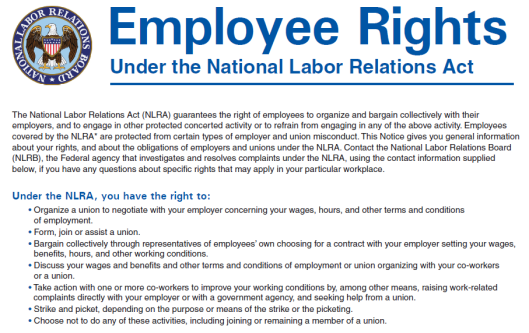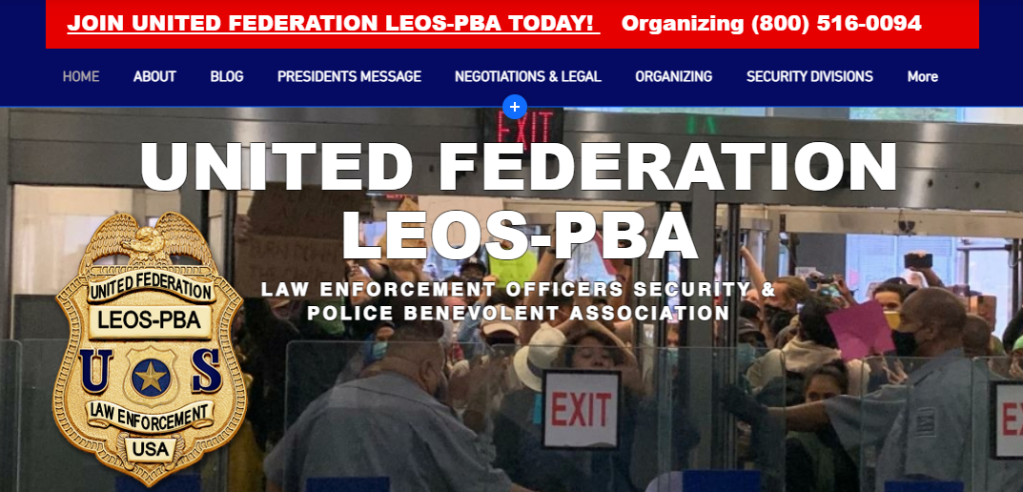

If your looking to join a Security Guard Union in Pennsylvania please fill out the join a security guard union form below and a security guard union representative will be in contact with you shortly.
A security officer (or security guard) is a person who is paid to protect property, assets, or people. They are usually privately and formally employed civilian personnel. Security officers are generally uniformed and act to protect property by maintaining a high-visibility presence to deter illegal and inappropriate actions, observing (either directly, through patrols, or by watching alarm systems or video cameras) for signs of crime, fire or disorder; then taking action and reporting any incidents to their client and emergency services as appropriate.
Many security firms and proprietary security departments practice the “detect, deter, observe and report” methodology. Security officers are not required to make arrests, but have the authority to make a citizen’s arrest, or otherwise act as an agent of law enforcement, for example, at the request of a police officer or sheriff.
A private security guards primary duty is the prevention and deterrence of crime. Security guard personnel enforce company rules and can act to protect lives and property, and they often have a contractual obligation to provide these actions. In addition to basic deterrence, security officers are often trained to perform specialized tasks such as arrest and control (including handcuffing and restraints), operate emergency equipment, perform first aid, CPR, take accurate notes, write detailed reports, and perform other tasks as required by the client they are serving.
All security guards / security officers are also required to go through additional training mandated by the state for the carrying of weapons such as batons, firearms, and pepper spray (e.g. the Bureau of Security and Investigative Services in California has requirements that a license for each item listed must be carried while on duty). Some security guards / security officers are required to complete police certification for special duties. Virginia training standards for security guards / security officers are identical to police training with regards to firearms (shotgun and handgun) but do not place licensing requirements for other items carried, only that training be provided that is documented. Several security guard companies have also become certified in RADAR and trained their sworn special police officers to use it on protected properties in conjunction with lights/sirens, allowing them to legally enforce traffic laws on private property.
For More information on security guard training, licensing information and security guard jobs in your state visit this website: http://securityguardjob.weebly.com/

Employees covered by the National Labor Relations Act are afforded certain rights to join together to improve their wages and working conditions, with or without a union.
Employee Rights to Join a Union / Security Guard Union
Employees covered by the National Labor Relations Act are afforded certain rights to join together to improve their wages and working conditions, with or without a union.
Union Activity
Employees have the right to attempt to form a union where none currently exists, or to decertify a union that has lost the support of employees.
Examples of employee rights include:
- Forming, or attempting to form, a union in your workplace;
- Joining a union whether the union is recognized by your employer or not;
- Assisting a union in organizing your fellow employees;
- Refusing to do any or all of these things.
- To be fairly represented by a union
Activity Outside a Union
Employees who are not represented by a union also have rights under the NLRA. Specifically, the National Labor Relations Board protects the rights of employees to engage in “concerted activity”, which is when two or more employees take action for their mutual aid or protection regarding terms and conditions of employment. A single employee may also engage in protected concerted activity if he or she is acting on the authority of other employees, bringing group complaints to the employer’s attention, trying to induce group action, or seeking to prepare for group action.
A few examples of protected concerted activities are:
- Two or more employees addressing their employer about improving their pay.
- Two or more employees discussing work-related issues beyond pay, such as safety concerns, with each other.
- An employee speaking to an employer on behalf of one or more co-workers about improving workplace conditions.
More information, including descriptions of actual concerted activity cases, is available on the protected concerted activity page.
Who is covered?
Most employees in the private sector are covered by the NLRA. However, the Act specifically excludes individuals who are:
- employed by Federal, state, or local government
- employed as agricultural laborers
- employed in the domestic service of any person or family in a home
- employed by a parent or spouse
- employed as an independent contractor
- employed as a supervisor (supervisors who have been discriminated against for refusing to violate the NLRA may be covered)
- employed by an employer subject to the Railway Labor Act, such as railroads and airlines
- employed by any other person who is not an employer as defined in the NLRA
For More Information on your Right to Join a Security Union please visit the National Labor Relations Board NLRB Website at: https://www.nlrb.gov/rights-we-protect

Organizing: 1-800-516-0094
United Federation LEOS-PBA (202) 595-3510





















